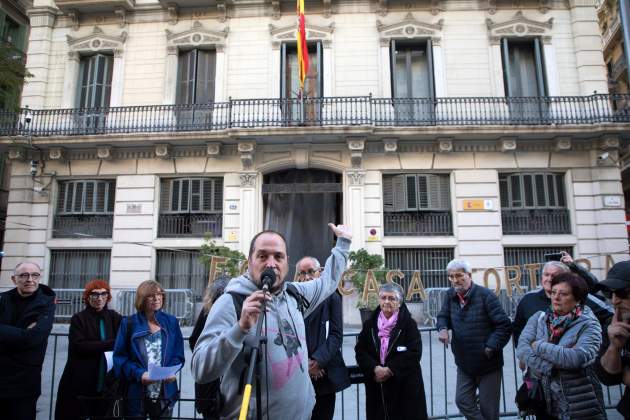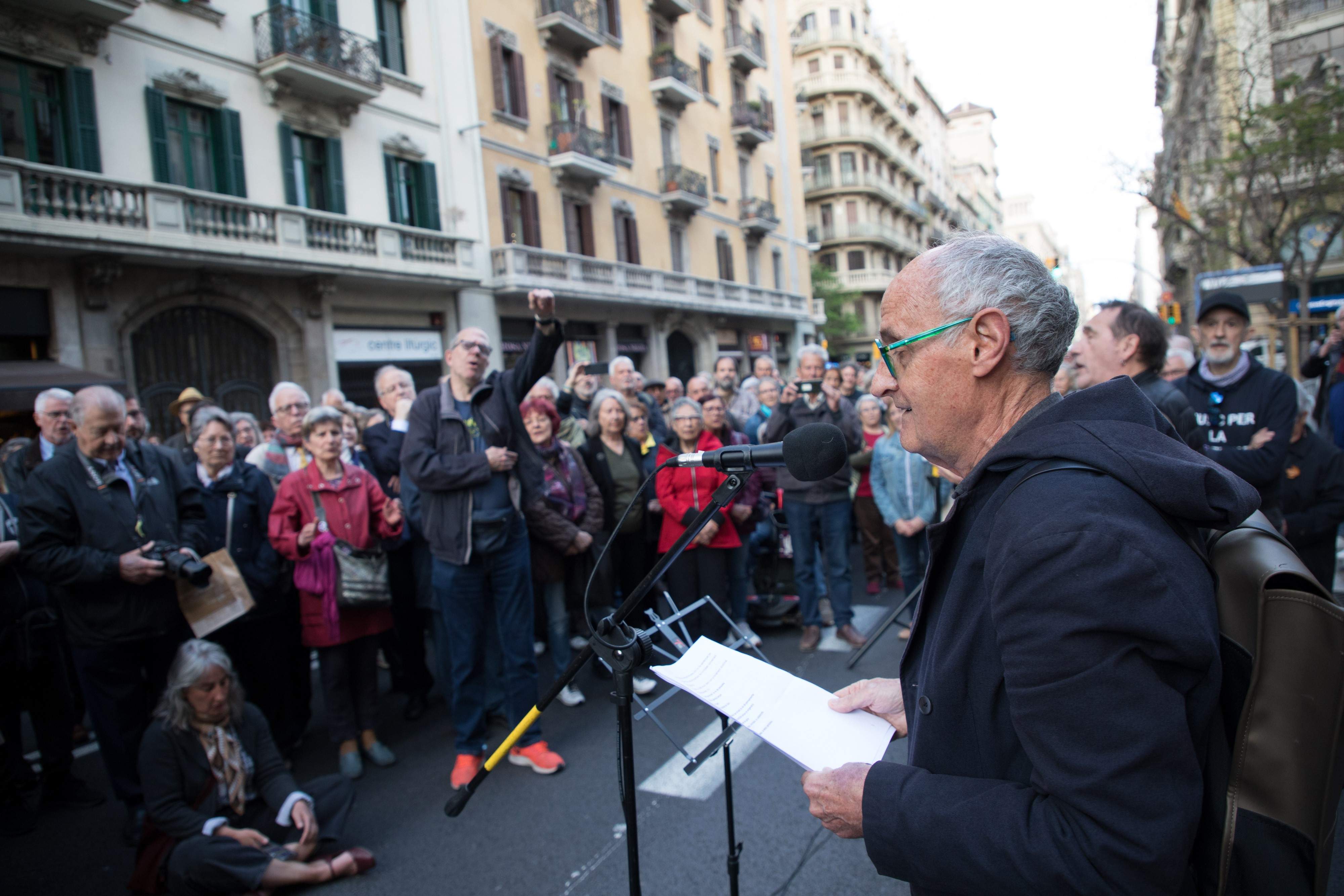A surprising step. The Spanish National Police have said that there was a "clear challenge to the resolutions" of electoral commissions and courts in the action of about 300 people in front of the police station in Barcelona's Via Laietana, on May 7th, when they gathered in a protest despite the ban imposed by the Barcelona Electoral Commission, ratified by the High Court of Catalonia (TSJC), on demonstrating in front of the police building because it was during the election campaign, according to a report to which ElNacional.cat has had access this Friday. The historical remembrance group, the Dignity Commission, has been organizing rallies in front of this police station twice a month to urge that this building be converted into a place of remembrance for the torture which people suffered there, both under the Franco dictatorship and also for many years under democracy. The electoral authority banned the rally because it claimed that it could become a political event and that only political parties can stage events in electoral periods. The Dignity Commission announced that it was cancelling the usual rally on the first and third Tuesday of each month and transforming it into an act against the ban on the right to protest.
The chief commissioner and head of the police information brigade delivered this report on the protest to an administrative disputes chamber at the Catalan High Court, which then transferred the information to the pubic prosecutors, who will now report to the court on whether they consider that the protest "may constitute a crime”, such as disobedience of a judicial resolution, and to the electoral commission, if it deems that there is an “administrative offence”.

Right to protest
The lawyer and president of the Dignity Commission, Pep Cruanyes, has affirmed that this police report "recalls those of the Politico-Social Brigade", which was in fact the Franco-era police unit that persecuted and led the beatings of activists and dissidents in the police station in Via Laietana, and he added that the report demonstrates that "the police are violating their duty of neutrality" and are "expressing opinions and making value judgments and incriminating insinuations".
Cruanyes recalled that the European Court of Human Rights (ECHR) defends the right to protest, which, he indicated, must be respected, especially those that cause discomfort and upset, as seems to be the case of the rally outside Via Laietana, 43 for the Spanish police. "The right of demonstration is the collective right of the freedom of expression, which is individual", explained Cruanyes.
In the report, dated May 10th, the head of the Spanish force's information brigade details that the Dignity Commission has been carrying out these rallies in front of the Via Laietana police station for three years. He adds that "despite the bans from the electoral board and court, the association maintained the rally for May 7th outside the police station" and extended it with a second communication which "added the objective of protesting against the resolution court and electoral board resolutions". This latter point is disputed by Cruanyes, who clarifies that it was not true; in fact, the rally was called off and a new one was held.
Social media
The commissioner, in the report, adds that the Dignity Commission "reinforced its call to demonstrate with messages through its social media in a clear challenge" to the official bodies' prohibitions. This is a gratuitous affirmation and is full of value judgments, argues Cruanyes. Finally, the police chief indicates that "about 80 people took part" in the May 7th rally and attached a photograph. And it details that "in their speeches, the organizers referred to the aforementioned resolutions, in addition to maintaining at all times a rhetoric of protest identical to that of the usual rallies called; that is, they ask for the police headquarters to be turned into a centre of historical remembrance against Franco's repression and torture." It remains to be seen whether the prosecutor's office and the Barcelona electoral board will ask for punishment of the organizers of the protest.
The Dignity Commission offers the reminder that next Tuesday, May 21st, it will hold another rally to again demand that the Via Laietana police station becomes a space of democratic memory.

